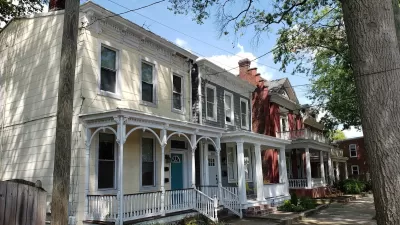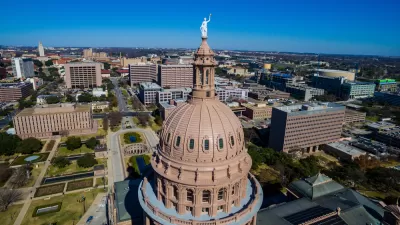Property taxes have traditionally been viewed as recession-proof channels for local revenue, but first the Great Recession, and now the pandemic depression, are proving to be exceptions to the rule.

"Cities and counties are predicting a drop in their property tax revenues over the next year, a phenomenon that’s rare in recessions and never in the modern era has it occurred so quickly," reports Liz Farmer.
"Among counties, 27% reported reduced property tax collections through the first half of this year and even more — 43% — expect shortages to surface over the next year, according to a National Association of Counties survey."
Farmer also pulls data from the National League of Cities report released last week, which expects property tax revenues to decline over the next two years.
Together: "These expected declines are contributing to what is expected to be a $202 billion impact to county budgets and a $360 billion impact to city budgets over the next three years," reports Farmer.
Farmer adds some perspective for the dire government revenue news: property tax revenue declines are rare in the history of recessions. "That’s mainly because municipalities reassess properties every few years and if the local real estate market heads south, it takes a few years to show up in assessed values, if at all. That lag gives municipalities a chance to raise property tax rates up and keep revenue relatively flat on a lower total property base."
While property taxes have been considered, in the past, recession-proof forms of government revenue, the Great Recession, with its waves of foreclosures, proved an exception to the rule.
Another reason for surprise is that all reports are that housing prices are mostly rising during the pandemic, as buyers rush to move to take advantage of low interest rates, or to take advantage of new flexibility in working from home. But that same activity in the residential market is balanced by uncertainty in commercial markets, as companies respond to the same economic dynamics.
FULL STORY: No Foreclosure Crisis In Sight But Property Tax Revenues Still Falling

Planetizen Federal Action Tracker
A weekly monitor of how Trump’s orders and actions are impacting planners and planning in America.

San Francisco's School District Spent $105M To Build Affordable Housing for Teachers — And That's Just the Beginning
SFUSD joins a growing list of school districts using their land holdings to address housing affordability challenges faced by their own employees.

The Tiny, Adorable $7,000 Car Turning Japan Onto EVs
The single seat Mibot charges from a regular plug as quickly as an iPad, and is about half the price of an average EV.

Seattle's Plan for Adopting Driverless Cars
Equity, safety, accessibility and affordability are front of mind as the city prepares for robotaxis and other autonomous vehicles.

As Trump Phases Out FEMA, Is It Time to Flee the Floodplains?
With less federal funding available for disaster relief efforts, the need to relocate at-risk communities is more urgent than ever.

With Protected Lanes, 460% More People Commute by Bike
For those needing more ammo, more data proving what we already knew is here.
Urban Design for Planners 1: Software Tools
This six-course series explores essential urban design concepts using open source software and equips planners with the tools they need to participate fully in the urban design process.
Planning for Universal Design
Learn the tools for implementing Universal Design in planning regulations.
Smith Gee Studio
City of Charlotte
City of Camden Redevelopment Agency
City of Astoria
Transportation Research & Education Center (TREC) at Portland State University
US High Speed Rail Association
City of Camden Redevelopment Agency
Municipality of Princeton (NJ)





























